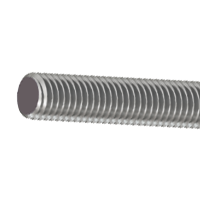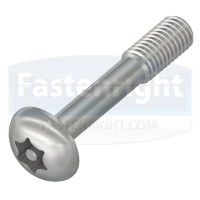When a fastener is installed, it’s assumed to stand the test of time – but this often is not, or will not be the case. There’s a silent plague that hits fasteners and can become an issue in the integrity and strength of a structure – known as corrosion.
Corrosion happens when the metal of the fastener’s basic attributes begin to deteriorate.
If a fastener is made from a metal with high electric potential and installed into an application including a low-potential metal, the possibilities of corrosion are increased. This is known as galvanic corrosion.
Different Types of Fastener Corrosion
There’s a number of types of corrosion, all of which can occur in different places and situations, and in a number of circumstances also.
These are a number of types of corrosion:
Galvanic corrosion is the type of corrosion that involves electric potential, and it transpires when two different types of metal are fastened and electricity flows between them – leaving behind corrosion.
There is also uniform corrosion, which happens across the entire surface area of a fastener when it has not been coated or plated correctly.
Intergranular corrosion occurs in stainless steel during welding and hot forming when it reaches extremely high temperatures. This is why you may see workers plunge parts and fasteners into water to cool them down, which inhibits said corrosion.
There’s pitting corrosion too – possibly one of the better-known forms – is when small holes develop upon a fastener, so minute in fact that they are difficult to detect. This is most likely going to affect materials like nickel and chromium.
And finally, crevice corrosion, which appears in gaps and openings in non-ventilated or poorly-ventilated.
Finishes That Can Make A Difference
There are a number of finishes and materials that can make a difference to the rates of corrosion in fasteners among a number of applications.
The likes of a chemical black and yellow zinc plating both provide mild corrosion resistance. With a chemical black finish, the electrochemical process during the coating turns it into a more protective substance.
With yellow zinc plating, once the zinc has been deposited onto the fastener, it provides the fixing with a protective layer which proves a good level of corrosion prevention.
Green chromate is often applied to galvanised screws and fasteners to ensure that they are more durable and protected from white corrosion, which is a form of oxidation rust.
Other finishes that are worthwhile to consider for stronger corrosion resistance include chrome plating, which is known for its wear resistance and corrosion resistance.
There is also a geomet finish which is formulated with an aqueous base. Hosting a number of impressive characteristics including a maintained performance at elevated temperatures, good resistance to mechanical and chemical damage and relatively good electrical conductivity – making it suitable in most applications.
Nickel plating provides high resistance to corrosion and is beneficial in situations likely to involve friction as nickel does not flake or chip.
And finally, sherardising is a zinc coating which when applied correctly gives a resilient defence against corrosion of the base metal, which makes it an ideal finish for items like washers, bolts, nuts, springs and castings.
Contact us Regarding Anti-Corrosion Finishes
We can provide a number of finishes that are listed on our website, but should you require something different – please do get in touch.




